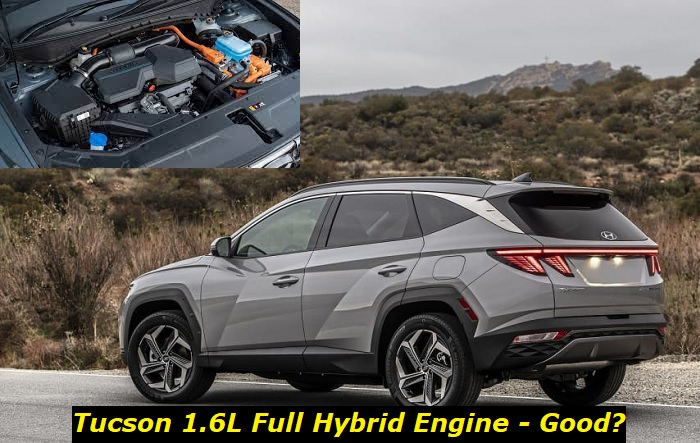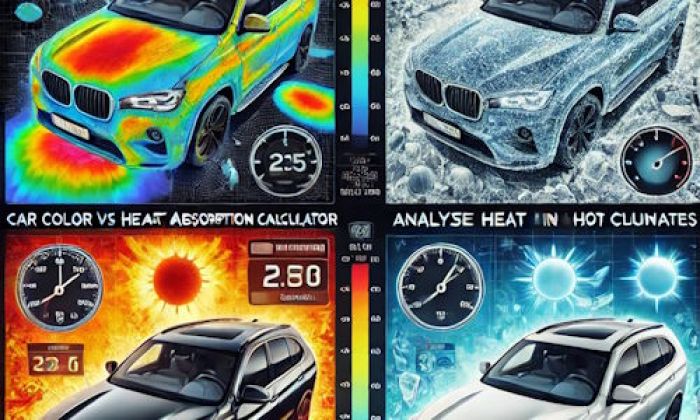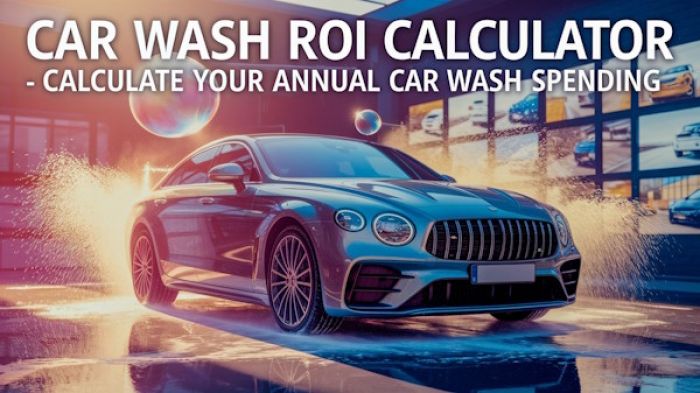With the number of trims and versions modern Hyundai cars provide you with, you can spend weeks considering which one you want to pay your money for. And eventually, all of them have their pros and cons. There are two main hybrid versions in the new Tucson SUV and they may be pretty challenging to choose between.
Today, we'll tell you about the Hyundai Tucson HEV 1.6L Hybrid engine which with a little battery pack onboard and will cover its main advantages and flaws. We'll see if this is a durable powerplant that offers really good fuel economy and all the other features you will want to get from a hybrid vehicle. We'll also talk about the gas engine itself.

Key facts and my opinion about the engine
- Production years: 2020-now
- Average lifespan of G4FT/G4FU: 130,000-150,000 miles
- Fuel supply type: direct injection
- Power range: 180 hp
- Fuel efficiency: excellent
- Engine block material: aluminum
- Engine reliability score: low
- The most common problems: timing chain issues, catalytic converter too close to the engine block, no lifters.
The 1.6L Turbo Hybrid in the Tucson - what engine is it?
Today, we are talking about the full hybrid or parallel hybrid SUV from Hyundai. It's not the plug-in hybrid that you can't charge from a socket and use as an EV. This powerplant is the bridge between old gasoline-powered cars and new EVs for those who still want unlimited range with access to millions of gas stations all around the US.
So, the heart of this hybrid powerplant is the 1.6L Smartstream Turbo engine codenamed G4FT. We've already told you about this turbocharged engine specially prepared for being part of a hybrid powerplant. It's paired with a single electric motor and a battery pack that is not huge (and not too expensive which is a good thing).
Here's what you may want to know about this engine:
- the gasoline engine is a 1.6-liter turbocharged Smartstream G4FT engine made in 2020 for hybrid units;
- the electric motor has the power of 44 kW making the system power 230 hp and the system torque 258 lb-ft - not bad at all;
- the engine is GDI (direct injection) unit with the timing chain in the system, the block and head are made of aluminum;
- the CVVD system which is the most modern valve control technology helps the engine be even more efficient than its counterparts on the market;
- the battery pack is only 1.49 kWh and this is a Li-Ion battery with quite long life and not a huge price for replacement packs;
- the gas mileage is stated as 38 MPG for both highway and city which is actually quite optimistic and not always true;
- the only available transmission type is the 6-speed automatic transmission which is a good choice and it also comes with AWD only;
- the powerplant is pretty fast taking the new Tucson from 0 to 60 mph in about 7.9 seconds - not bad for an SUV.
So, you get cool torque and great power, wonderful fuel economy, practical combination of a Smartstream engine and a simple electric motor. Doesn't seem like a bad offer. But you should know that everything has its own disadvantages and sometimes those are very unexpected. This engine also has some flaws that will not allow it to live for ages.
We should say that Hyundai Tucson Hybrid owners still write good reviews and are glad about what they can get for this money. They say Hyundai is great in terms of technologies and comfort and you can actually drive it achieving the claimed gas mileage if you are a careful driver.
How long will the powerplant live?
When talking about a hybrid vehicle, we want to assess the lifespan of the battery pack, transmission, and engine itself. Traditionally the battery is the first to die at about 100,000 miles and this is what's going to happen with your Tucson. The gas mileage will then deteriorate and the car will not seem as good to drive as before. But you can replace the battery pack without paying a fortune for this.
So, it comes down to the gasoline engine and the transmission. In terms of the transmission, we have here the best possible choice for a hybrid vehicle - the traditional 6-speed automatic transmission. It's not a DCT or eCVT - just a simple transmission that can be repaired and will actually last longer than the engine. We expect it to last about 150,000 miles and then another 100,000 miles after repair.
Well, the engine will fail much earlier than the transmission will need repair. The 1.6-liter turbo Smartstream by Hyundai is not the best choice for the hybrid powerplant, in our point of view. We expect it to last between 120,000 and 140,000 miles. The engine has too many weak links that can make it fail even earlier than that.
What are the common problems with the Tucson Hybrid engine?
While the electric motor won't fail and the battery has a certain predictable lifespan, the gasoline G4FT engine is the only point of consideration in the new Tucson full-hybrid SUV. We've already seen these engines taken apart in Hyundai dealerships and repair shops. We want to remind you here that the first such engine was manufactured in 2020 and probably sold in 2021!
So, we have to focus on some flaws that can lead to the quick death of the 1.6L Turbo engine that is part of the hybrid powerplant in the Tucson.
1. Timing chain failure
One of the key considerations is the timing chain. Other versions of the 1.6L Smartstream Turbo engines have this problem - their chain may jump or even brake. This may lead to complete engine failure with valve and piston damages. We recommend replacing the chain prior to 80,000 miles.
This is not the cheapest repair you will have with your Tucson, but better replace the chain before 80K miles to avoid problems if it eventually jumps. You will save thousands of dollars and weeks of your time.
2. Valve adjustment problems
At 40,000 miles or even earlier, you may notice that the engine lost some power and works roughly. This is a clear sign that the valves are not adjusted properly. This engine has no hydraulic lifters which is one of the biggest surprises - so many modern technologies and no lifters to adjust the valves!
This will not only cause some issues with performance but also take some money out of your pocket. Valve adjustment is going to cost a lot if you decide to make it in a dealership.
3. Catalytic converter in the manifold
The traditional Hyundai problem is still there. The company placed the catalytic converter right in the exhaust manifold. When the cat converter fails and starts falling apart (which is just a question of time and mileage), some of the ceramic particles and dust may easily get directly to the cylinders. The hard ceramic particles may easily damage the cylinder and leave a scratch that will step by step destroy the engine.
Replacing catalytic converters is not cheap but, in this engine, you will need to do it before they fail. Or it may just be too late.
4. CVVD's questionable reliability
The new high-tech CVVD system is used here to control the valves. It's quite efficient and wonderful for fuel economy and performance but no one has any idea how long it will survive. We can guess that repairing this system will cost you a fortune.
Also, we should say that the valves will be pretty often clogged because of the pure GDI system - there are no port injectors to clean the valves automatically. So, valve cleaning will be one of the regular services you will have to pay for.
What should you do to keep your Tucson Hybrid running longer?
With any modern vehicle, we have to know some magic to avoid premature death of the powerplant. And the Tucson Hybrid is not an exception. This is the engine that requires such things to live longer than average:
- regular maintenance is extremely important, you should buy high-quality parts and fluids only;
- hybrid battery check after 50,000 miles and then replacement at 100,000 miles is much recommended;
- valve cleaning and valve adjustment are important procedures that should be included in regular maintenance routines;
- aggressive driving should be forgotten - only calm and careful use of the engine;
- timing chain replacement is highly recommended prior to 80,000 miles;
- proper engine inspection is needed every 20K miles or every year to avoid issues with the cat converter or other units.
Hyundai offers a standard warranty of 5 years or 60,000 miles. We are sure that within this period, you will have little to no problems with this engine. But after 60K miles, things may go much worse. Be ready to invest in regular inspections and try to prevent problems instead of waiting till your hybrid engine shows some symptoms and fails.
About the authors
The CarAraC research team is composed of seasoned auto mechanics and automotive industry professionals, including individuals with advanced degrees and certifications in their field. Our team members boast prestigious credentials, reflecting their extensive knowledge and skills. These qualifications include: IMI: Institute of the Motor Industry, ASE-Certified Master Automobile Technicians; Coventry University, Graduate of MA in Automotive Journalism; Politecnico di Torino, Italy, MS Automotive Engineering; Ss. Cyril and Methodius University in Skopje, Mechanical University in Skopje; TOC Automotive College; DHA Suffa University, Department of Mechanical Engineering






Add comment